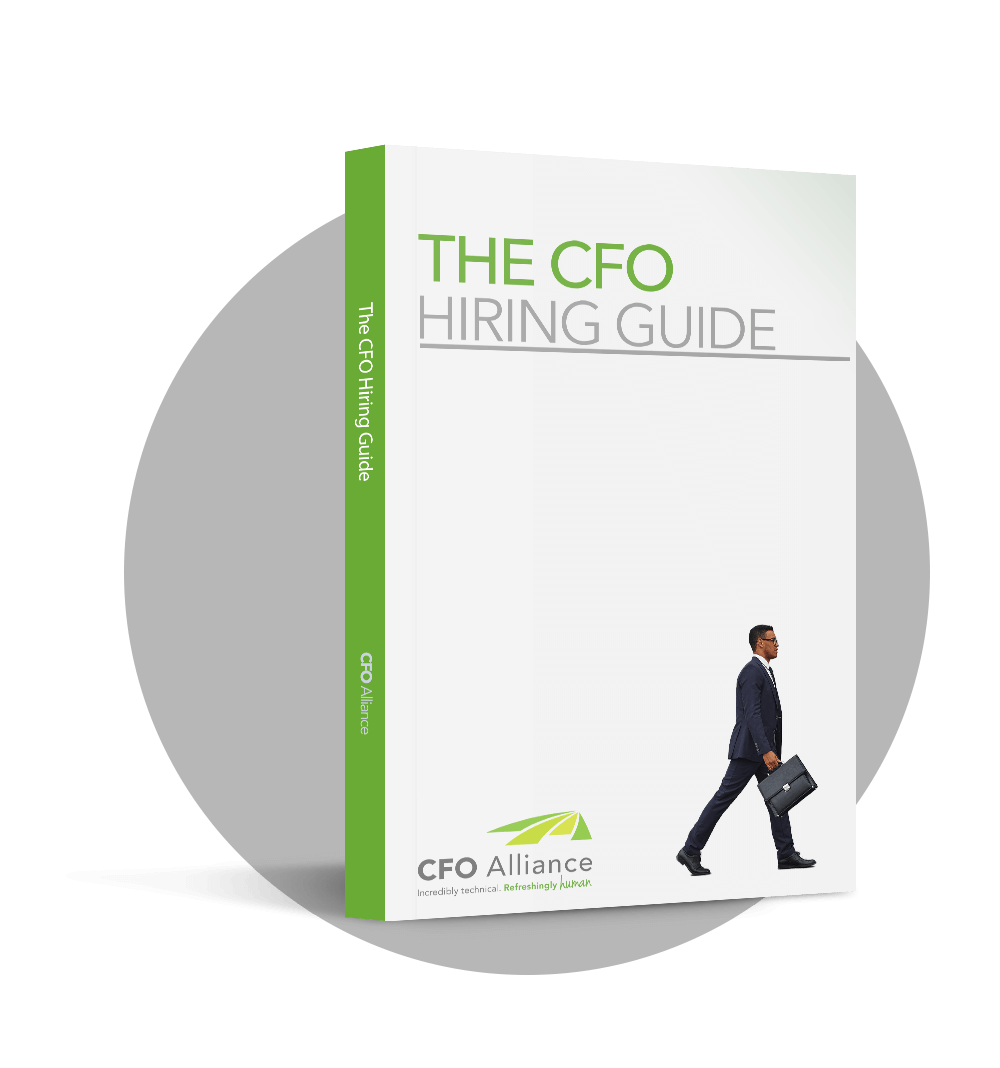Are You Ready
To Hire A CFO?
When Does a Business Need a CFO?
Your hard work and sacrifices as an entrepreneur are paying off. You are on the cusp of taking your company to the next level; you can feel the excitement. You may have been so focused on building and running your company, you have only thought about the need for a CFO when you have felt pain over accounting and finance. However, it pays to be proactive in thinking about your strategic finance needs now.
As businesses grow in size and complexity, the lack of a CFO becomes increasingly apparent. One question we are asked quite frequently is what do CFOs actually do? A CFO will own all financial aspects of the business and marry them with strategy and operations to provide invaluable insights as a strategic partner to the CEO and a key part of all major decisions. A CFO will be much more to you and your business than just an Accounting leader. The right CFO will help you maximize the value of your business. He or she will:
- Prepare your company for scale
- Be forward-thinking and anticipate challenges related to your business model or operations
- Influence and inspire other leaders in your business to drive results
- Become your trusted confidant and business partner
Annual compensation for an in house CFO at an entrepreneurial company could range anywhere from $150K to $400K depending on your company’s size and level of expertise required, making a CFO a major investment. An outsourced CFO or fractional CFO could be a more cost-effective option for your investment. Knowing the right time to bring on a CFO is critical. Here are some common signs that you may be ready.
CFO for Hire – 7 Steps To Look For
1. Finance and accounting are taking time away from running your business. Without a dedicated leader to focus on finance and accounting, it may end up requiring time from the rest of your management team to pick up the slack. This could take valuable time away from business development, sales, marketing, and operations.
2. You don’t know if you’re making money on customers, products, or service lines. Growth is typically a good thing, but not all growth is created equal. Depending on the industry, this could take form in a few ways:
- A new customer contract is so administratively burdensome that it becomes unprofitable even though it appears to improve gross margin.
- A new product line with poorly allocated manufacturing overhead creates the appearance of margin growth while instead costs are misallocated to other, more profitable products.
- A new service cannibalizes existing higher-margin services.
- Discounts are given to win new customers without first testing the impact of lower price points on the business overall.
Without a CFO and a proper finance function, it may be hard to figure out the financial impact of new business, or even worse, lead management to incorrect conclusions and poor decisions.
3. You’ve had one too many financial surprises. Whether it’s day-to-day cash management related or surprise tax obligations, the lack of warning, and transparency into your financial state may be creating too much anxiety for you. A CFO will be able to forecast cash flows and prepare you for pending obligations.
4. You don’t have the right visibility into your business. One frustration we have repeatedly heard from entrepreneurs is that they are unable to get clear, relevant, and timely information in order help them manage their business or understand the financial impact of decisions they have made. A CFO will help solve this problem, by focusing on improving processes and using systems and automation in order to enhance clarity, accuracy and timeliness of financial and management reporting.
5. You have taken outside investment. Receiving an outside investment is a source of market validation and represents an opportunity for growth. Along with that, “OPM” (Other People’s Money) almost always comes with strings attached. Your investors will expect regular and frequent financial updates, progress reports towards your operational goals, and clear explanations of financial results. A CFO’s responsibilities will include providing that information and serving as a point person for investor relation matters or follow up questions from investors.
It's Time To Prepare Your Company For Growth
Get your free CFO Hiring Guide Today!
6. Your board is asking questions you can’t answer. As your business grows, its complexity will too. Experienced board members and investors will have a keen eye for financial irregularities and will expect explanations. They will ask questions about KPIs they hope to benchmark from their past experiences. Without proper finance and accounting systems in place, these KPIs may be difficult to produce on demand. Measuring, tracking, and improving these KPIs can greatly increase the value of your business.
7. You plan to go through an acquisition, capital raise, or other strategic events. Acquisitions present major financial and operational challenges, and if not handled correctly, can have lasting implications. A CFO would sit at the center of an acquisition process, overseeing everything from initial valuation to systems integration. Additionally, potential acquirers, investors, and lenders will expect to see robust financial statements, forecasts, and related analyses. It is important to have a compelling, substantive financial picture so you can put your best foot forward and maximize the value of your business. Having an experienced CFO will create credibility in the eyes of potential external stakeholders.
Is It Time for a CFO?
So when is the right time to hire a CFO? It depends but there is a reason many second-time entrepreneurs hire one as soon as they start their business. They learned in their first endeavor how much value the CFO creates for their company and that the CFO is not just a back-office cost. Rather, the right CFO is an investment that creates value from the start.
Our Outsourced CFO Leaders Can Help
Take the technical financial burden off you so you can focus on your priorities. As your business grows, finances become more complex and time-consuming. The financial aspect of your business can distract you from executing on your vision.
Additional Resources For Business & Financial Leaders
Top 5 Financial Recovery Actions
Cash Flow Forecasting: 5 Reasons Why It’s More Important Than Your P&L
Prosperity Tools For Businesses



